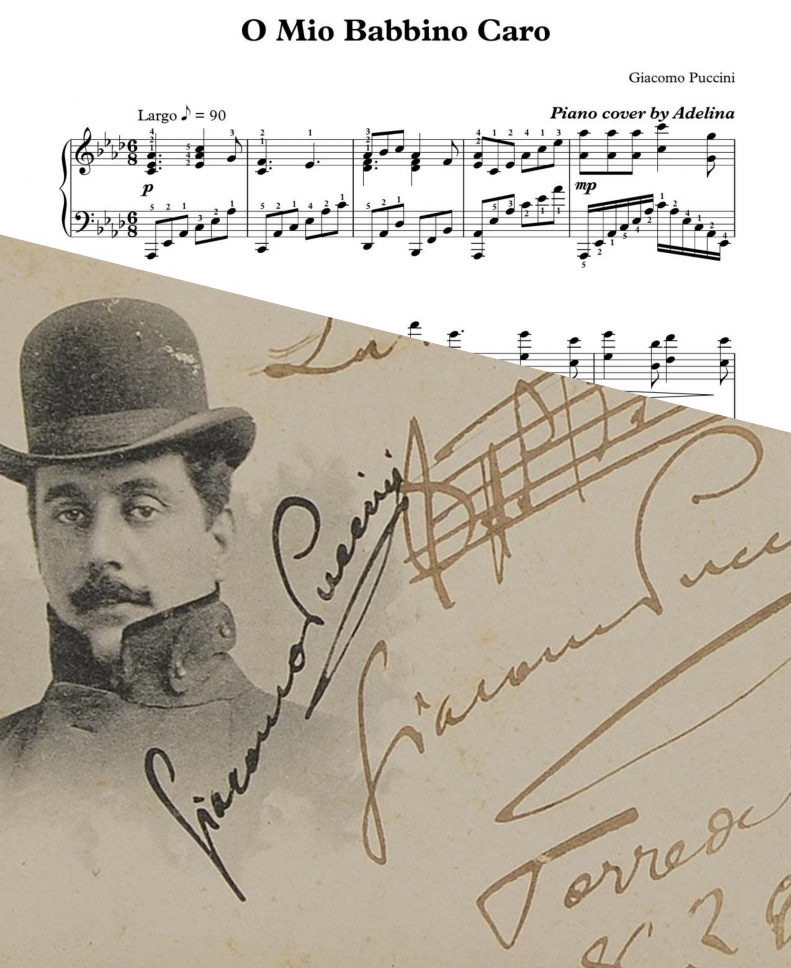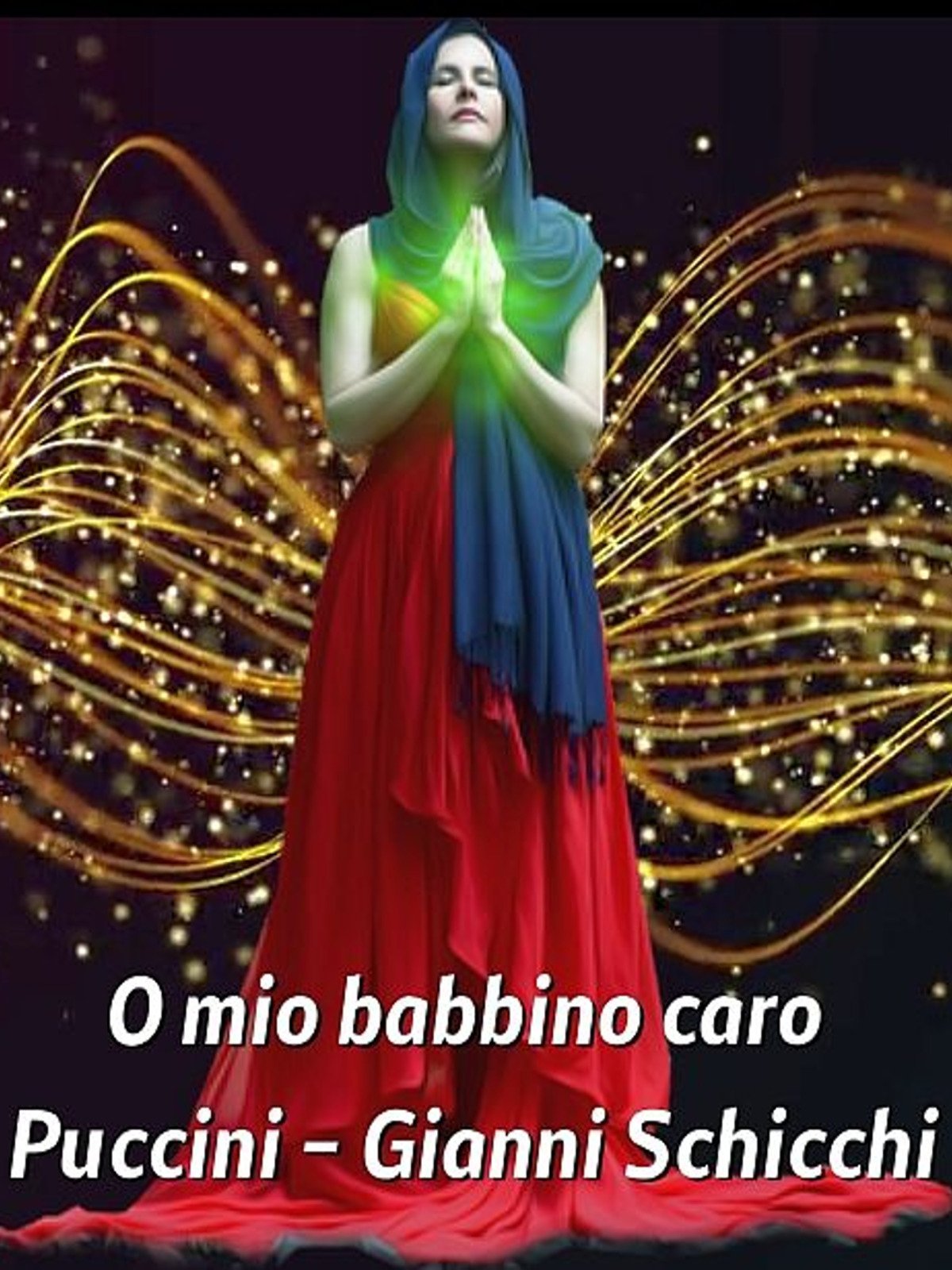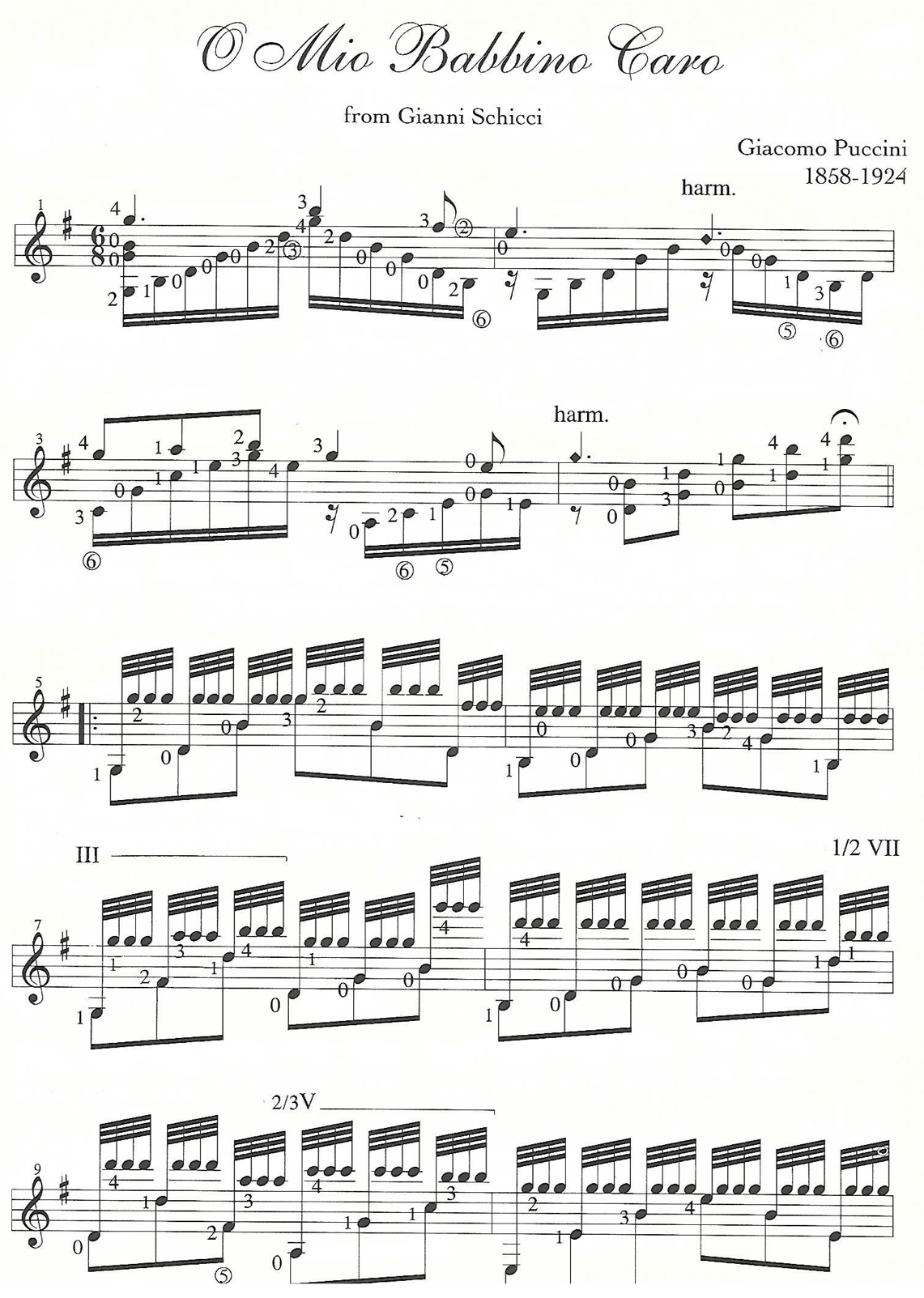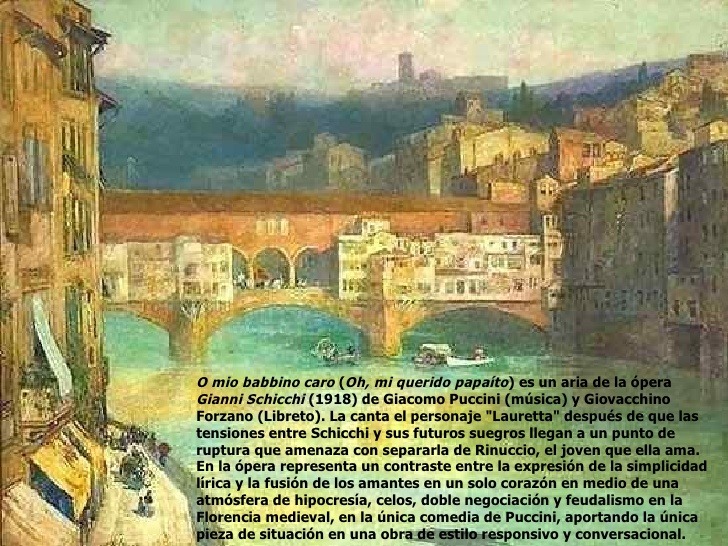O Mio Babbino Caro
Giacomo Puccini


Giacomo Puccini


"Oh My Beloved Father" is a soprano aria from the opera Gianni Schicchi (1918) by Giacomo Puccini to a libretto by Giovacchino Forzano.
It is sung by Lauretta after tensions between her father Schicchi and the family of Rinuccio, the boy she loves, have reached a breaking point that threatens to separate her from Rinuccio.
Lauretta begs her father Gianni Schicchi to help her marry the love of her life, Rinuccio.
It provides an interlude expressing lyrical simplicity and single-hearted love in contrast with the atmosphere of hypocrisy, jealousy, double-dealing, and feuding in the medieval Florence of Puccini's only comedy.
 It provides the only set-piece in the through-composed opera.
It provides the only set-piece in the through-composed opera.

"O Mio Babbino Caro"
It is sung by Lauretta after tensions between her father Schicchi and the family of Rinuccio, the boy she loves, have reached a breaking point that threatens to separate her from Rinuccio.
Lauretta begs her father Gianni Schicchi to help her marry the love of her life, Rinuccio.
It provides an interlude expressing lyrical simplicity and single-hearted love in contrast with the atmosphere of hypocrisy, jealousy, double-dealing, and feuding in the medieval Florence of Puccini's only comedy.

👇 ♪ 📽 ♪ 👇
Maria Callas
The aria was first performed at the premiere of Gianni Schicchi on 14 December 1918 at the Metropolitan Opera in New York by the popular Edwardian English soprano Florence Easton. It has been sung subsequently by many sopranos. Dame Joan Hammond won a Gold Record in 1969 for 1 million sold copies of this aria.

Gianni Schicchi
Mirella Freni
"O Mio Babbino Caro"
Lyrics and Text Translation
Lyrics From Puccini's Famous Gianni Schicchi Aria (1918)
| Italian | Literal translation | Singable English |
O mio babbino caro
|
Oh my dear papa, | Oh my beloved father, |
| Mi piace, è bello, bello | I love him, he is handsome, handsome. | I love him, I love him! |
| Vo' andare in Porta Rossa | I want to go to Porta Rossa | I’ll go to Porta Rossa, |
| A comperar l'anello! | To buy the ring! | To buy our wedding ring. |
| Sì, sì, ci voglio andare! | Yes, yes, I want to go there! | Oh yes, I really love him. |
| E se l'amassi indarno, | And if my love were in vain, | And if you still say no, |
| Andrei sul Ponte Vecchio, | I would go to the Ponte Vecchio | I’ll go to Ponte Vecchio, |
| Ma per buttarmi in Arno! | And throw myself in the Arno! *(River) | And throw myself in the River |
| Mi struggo e mi tormento! | I am anguished and tormented! | My love for which I suffer, |
| O Dio, vorrei morir! | Oh God, I'd want to die! | At last, I want to die. |
| Babbo, pietà, pietà! | Papa, have pity, have pity! | Father I beg, I beg. |
| Babbo, pietà, pietà! | Papa, have pity, have pity! | Father I beg, I beg. |

André Rieu & Amira
O Mio Babbino Caro
André Rieu & Amira Willighagen
André Rieu & Amira Willighagen
From the DVD "Love in Venice"
Music
Range 

The short aria consists of 32 bars and takes between 2½ and 3 minutes to perform. It is written in A-flat major with the time signature of 6/8 and a tempo indication of andantino ingenuo (=120). The vocal range extends from E♭4 to A♭5, with a tessitura of F4 to A♭5. The 5-bar orchestral prelude, in E-flat major and 3/4 time, consists of octave tremolos by the strings;
in the opera, these five bars are Gianni Schicchi's words ("Niente!")
at the end of his preceding dialogue with Rinuccio. Many recital
arrangements start with a presentation of the melodic theme; the remaining accompaniment uses strings and a harp playing broken chords.

Renée Fleming ♫ Marin ♫
Berliner Philharmoniker
Berliner Philharmoniker
Renée Fleming, soprano
Ion Marin, conductor · Berliner Philharmoniker
Recorded at the Waldbühne, Berlin, 27 June 2010
The Berliner Philharmoniker's Digital Concert Hall:
Full-length concert: https://www.digitalconcerthall.com/concert/337/?a=youtube&c=true

The United States Army Field Band
from Gianni Schicchi
Sergeant First Class Rose Ryon of the Soldiers' Chorus sings the famed soprano aria from Giacomo Puccini's comedic opera, Gianni Schicchi.
Odds are, opera fans will recognize "O Mio Babbino Caro" as one of the most popular soprano arias. Written by the Italian composer Giacomo Puccini, it is from "Gianni Schicchi," his only comedy. Inspired by Dante's "Divine Comedy," this one-act opera tells the tale of Gianni Schicchi, a man who lived in 13th century Florence, Italy.
Context
In the opera, Schicchi is consigned to hell for having impersonated a dead nobleman in order to steal his fortune.
In the opera, Schicchi is consigned to hell for having impersonated a dead nobleman in order to steal his fortune.
"O Mio Babbino Caro" is sung near the beginning, after relatives of the wealthy Buoso Donati gather around his bed to mourn his passing. In fact, they are only there to figure out to whom he left his great fortune of money.
A rumor spreads that instead of leaving his accumulated wealth to his family, Donati is giving his entire fortune to the church. The family panics and begins frantically searching for Donati's will. Rinuccio, whose mother is Buoso Donati's cousin, finds the will but withholds from sharing its information with any of his relatives.
Confident
that he has been left a large sum of money, Rinuccio asks his aunt to allow him to marry Laurette, the love of his life and the daughter of Gianni Schicchi. His aunt tells him that as long as he has received an inheritance, she will allow him to marry Lauretta. Rinuccio happily sends a message inviting Lauretta and Gianni Schicchi to come to
Donati's house.
Then Rinuccio begins to read the will.
Far from becoming a rich man, Rinuccio discovers that Donati's entire fortune instead will be bequeathed to a monastery. He is distraught because he won't be allowed to marry Lauretta as his aunt promised. When
Lauretta and Gianni Schicchi arrive, Rinuccio begs Gianni to help him regain Donati's fortune so that he may wed his beloved.
Rinuccio's family scoffs at the idea and begins arguing with Gianni Schicchi. Schicchi decides they are not worth helping, but Lauretta begs her father to reconsider by singing "O Mio Babbino Caro." In it, she declares that if she cannot be with Rinuccio she would rather throw herself into the Arno River and drown.

André Rieu- O Mio Babbino Caro
(Subtitulada Español) HD
Carmen Monarcha
Anna Netrebko + Lyrics

Lyrics
Angela Gheorghiu
(Subtitulada Español) HD
Carmen Monarcha
Anna Netrebko + Lyrics
Lyrics
Angela Gheorghiu
At the song's conclusion, Schicchi conspires to hide Donati's body, impersonate the dead man and rewrite the will to favor Rinuccio instead of the church. Schicchi pulls off the deed, despite protests from the dead man's relatives. Now a wealthy man, Rinuccio can wed his beloved Lauretta.
The sight of the two lovers together so moves Schicchi that he turns to the audience to address them directly. He may be condemned to hell for his acts, he sings, but the punishment is worth the satisfaction of using the money to bring the two lovers together. As the opera concludes, Schicchi seeks forgiveness, asking those in attendance for understanding his "extenuating circumstances."
Notable Singers
"O Mio Babbino Caro" is one of the most popular soprano arias in existence and one whose melody is likely to get stuck in your head. There are hundreds, if not thousands of videos and recordings of "O Mio Babbino Caro" online. With a little research, you can find your own favorite rendition.
Some of the most notable sopranos in the history of opera have sung "O Mio Babbino Caro," including Renée Fleming.
Others who have performed in this Puccini opera include Maria Callas, Montserrat Caballe, Sarah Brightman, Anna Netrebko and Kathleen Battle.
- "O mio babbino caro": Scores at the International Music Score Library Project (IMSLP)
- "O mio babbino caro" at The Aria Database
- "O mio babbino caro", score (piano and voice)
- "O mio babbino caro" on YouTube, sung by Elisabeth Schwarzkopf
- "O mio babbino caro" on YouTube, sung by Angela Gheorghiu
- "O mio babbino caro" on YouTube, sung by Maria Callas
- "O mio babbino caro" on YouTube, sung by Sissel Kyrkjebø



No comments:
Post a Comment